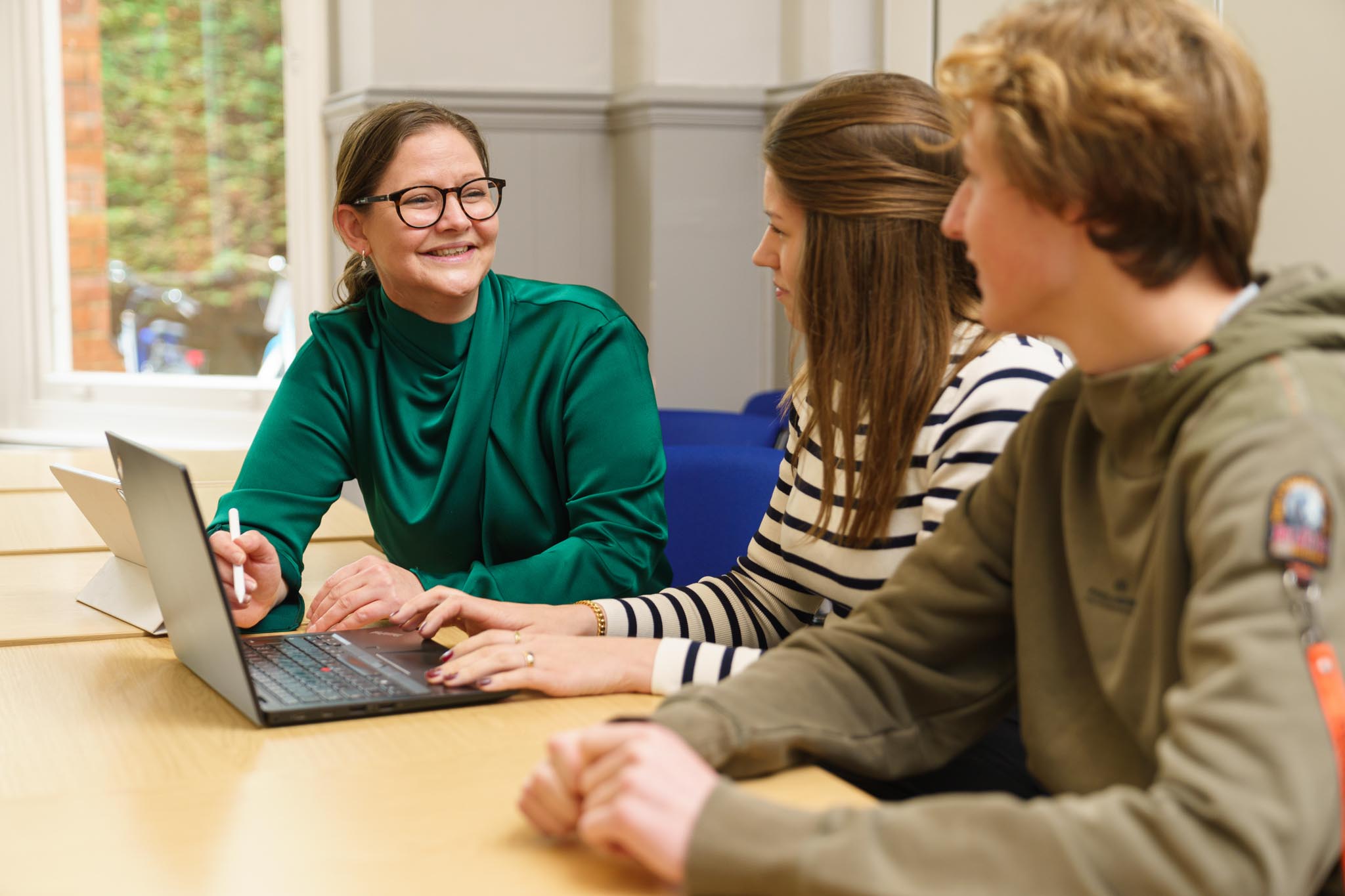Student Support

Students with Learning Difficulties or Disabilities
e.g. Dyslexia, Dyscalculia, Dysgraphia
Learning difficulties are identified a) at interview and b) through the medical questionnaire filled in by every student before their arrival. Interview forms and medical questionnaires are then used to make a list of students who have learning difficulties. This is used by the Learning Support Coordinator:
- ask them to produce an Educational Psychologist’s report, or equivalent, if they have not already done so. Students who have no previously recorded learning difficult, but present as having an undiagnosed learning difficulty will be encouraged to undergo an assessment with the college’s independent assessor Dr Robin Bartlett of the Oxford Educational Assessment Centre. The report will be used to;
- draw up an Individual Education Plan (IEP) based on the findings of the Educational Psychologist and through discussion with the student;
- supply information to teachers about the learning difficulty. The report and the IEP are made available to relevant staff who will respond appropriately to the recommendations made;
- supply information to the IB or the IGCSE Awarding Bodies about the learning difficulty, so that they can give permission for extra time in exams, use of word processor, etc.
- the same permissions are used in most of our internal exams.
Provision for students with recognised special assessment needs
- Information is supplied to relevant staff i.e. teachers and Personal Tutor – see above.
- Responsibility for the measures above lies with the Assistant Principal, Pastoral and the Vice Principal, Academic.
Teachers
St Clare’s is an inclusive school where all teachers are experienced in helping all students reach their potential.
Personal Tutors
Personal tutors monitor student progress through tracking reviews and help students with general organisation and planning. They offer one-to-one guidance for all their tutees during tutor meetings.
Learning Support and Neurodiversity Coordinator
The Coordinator works with students, teachers, and personal tutors to develop strategies to help all students, no matter their learning difficulties, to make progress.
Alongside ongoing monitoring there are weekly drop in sessions for one-to-one support for general learning support, such as organisation and study skills, or for more detailed strategies for specific learning difficulties such as dyslexia and dysgraphia.
If students don’t currently have a diagnosis, and think they might have a specific learning difficulty then the Coordinator will complete a screening process and help them to arrange an assessment.
Students with a diagnosis work with the Coordinator to write an Individual Educational Plan (IEP) which will include what strengths and weaknesses they have and how best they can be supported. There is an emphases on helping the student have agency and develop strategies to help themselves. This will be shared with their teachers and the IB.
IB Guidelines for Inclusive Assessment Arrangements
Students may have learning support requirements due to one or more of the following:
- Autism spectrum/Asperger’s syndrome
- Learning disabilities
- Medical conditions including mental health issues
- Physical and/or sensory challenges
- Social, emotional and behavioural difficulties
- Speech and/or communication difficulties
Evidence required
A psychological/psycho-educational/medical report may be written by medical, health, educational or psychological professionals with appropriate qualifications and/or professional licenses in their country of residence.
All psychological/psycho-educational/medical reports must:
- be within three years of the exam to be taken (there is flexibility for medical reports for permanent challenges)
- be legible, on paper with a letterhead, signed and dated
- state the title, name and professional credentials of the people who have undertaken the evaluation and diagnosis of the candidate
- state specifically the nature of the learning support requirement, and the tests or techniques used to arrive at the identification
- be accompanied by a translation into English, French or Spanish, if it is not written in one of the IB working languages.
All psychological/psycho-educational reports must:
- be based on the candidate’s performance on nationally standardized psychological tests (where available and published, recent editions of standardized tests should be employed)
- report results as standard scores, which have a mean of 100 and a standard deviation of 15, and not percentiles or age/grade equivalent.
Our pastoral team offers personalised support
We provide a nuturing and supportive learning environment
Contact Ellen Hesse, Vice Principal (Pastoral)
Back to top ^

